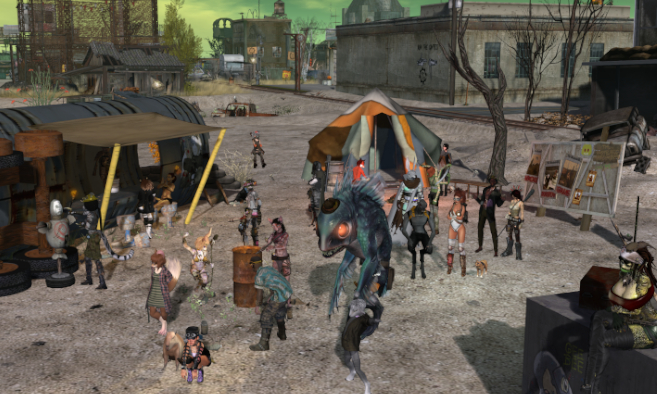From Dungeons to Stars – The Diverse Genres That Shape Modern Role Playing Games
Role-playing games RPGs have evolved dramatically over the years, branching out into various genres that reflect the diverse interests and imaginative landscapes of their players. Originally rooted in fantasy, with games like Dungeons & Dragons D&D paving the way for tabletop RPGs, the genre has since expanded into a myriad of styles that encompass everything from sci-fi and horror to historical and even slice-of-life narratives. This evolution has not only broadened the scope of storytelling within RPGs but has also democratized the medium, allowing for unique personal experiences that resonate with different audiences. At the heart of many RPGs lies the rich tapestry of fantasy settings, where players can immerse themselves in elaborate worlds filled with mythical creatures, magical powers, and epic quests. Dungeons & Dragons remains the archetype of this genre, inspiring countless adaptations and spin-offs. However, the fantasy genre has diversified, with sub-genres such as urban fantasy, high fantasy, and dark fantasy exploring different themes and narrative styles.

Meanwhile, the sci-fi genre has carved out its niche within the RPG landscape, appealing to those who dream of exploring the cosmos or navigating dystopian futures. Titles like Cyberpunk 2020 and Starfinder offer players a chance to engage with futuristic themes, advanced technology, and complex political dynamics, often reflecting real-world concerns through the lens of speculative fiction. These games challenge players to consider ethical dilemmas and the consequences of technological progress, fostering deeper engagement with the narrative. The horror genre also plays a crucial role in shaping modern RPGs, providing a platform for exploration of fear, suspense, and the unknown. Games such as Call of Cthulhu and Vampire: The Masquerade immerse players in chilling narratives where they confront supernatural threats and grapple with moral ambiguities. The psychological depth of horror RPGs often encourages players to delve into their characters’ motivations and fears, resulting in a more intimate and emotional gaming experience.
By blending factual history with fantastical elements, these games enrich players’ understanding of the past while providing a canvas for creative storytelling. Players can explore themes of heroism, betrayal, and survival within the context of real-world struggles, making for compelling narratives that resonate across time. Furthermore, the rise of indie RPGs has introduced a wave of experimental genres and mechanics that challenge traditional structures. Games like Monsterhearts and Fiasco encourage players to embrace improvisation and narrative-driven gameplay, resulting in stories that are often personal and introspective. These innovations reflect a growing desire among players for more inclusive and diverse narratives, allowing for greater representation of varied experiences and identities. In conclusion, the diverse genres that shape modern RPGs reflect the evolving landscape of storytelling, offering players a vast array of experiences that transcend traditional boundaries. From dungeons to stars, these dnd store san antonio games continue to captivate and inspire, pushing the limits of creativity and imagination in the world of role-playing. As the medium continues to grow and evolve, it remains an enduring testament to the power of storytelling in all its forms.